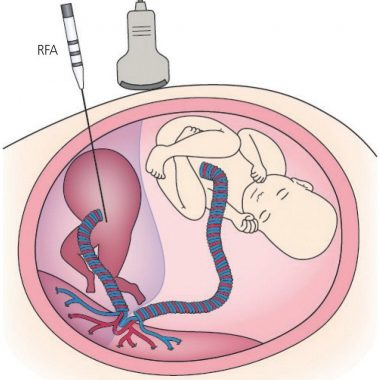Fetal Therapy
- 𝗛𝗼𝗽𝗲 𝗪𝗼𝗺𝗲𝗻'𝘀 𝗛𝗼𝘀𝗽𝗶𝘁𝗮𝗹
- Fetal Therapy

MON-SAT 8:00-9:00
+9199099 01123

Fetal Therapy Services at HOPE Women’s Hospital
Fetal therapy refers to specialized medical interventions and treatments designed to address fetal health concerns, developmental abnormalities, or conditions diagnosed during pregnancy. Fetal therapy aims to optimize fetal well-being, improve outcomes, and provide early intervention for certain fetal conditions. At HOPE Women’s Hospital, we offer comprehensive fetal therapy services, including fetal interventions and treatments, to support expectant parents and their babies during pregnancy.Understanding Fetal Therapy
Fetal therapy involves:
- Fetal Interventions: Medical procedures or interventions performed in utero (inside the womb) to treat specific fetal conditions, correct abnormalities, or improve outcomes.
- Treatment Planning: Individualized treatment plans developed based on fetal diagnosis, medical assessment, risk evaluation, and parental preferences.
- Multidisciplinary Care: Collaboration among maternal-fetal medicine specialists, fetal surgeons, neonatologists, pediatric specialists, genetic counselors, and support staff to provide comprehensive care.
- Monitoring and Follow-Up: Ongoing monitoring, follow-up evaluations, and coordination of care throughout pregnancy, delivery, and postnatal period for optimal outcomes.
Types of Fetal Therapy
- Fetal Surgical Interventions: Invasive procedures performed in the uterus to correct structural abnormalities, repair defects, or alleviate complications affecting fetal health. Examples include fetal surgery for spina bifida, congenital diaphragmatic hernia, twin-to-twin transfusion syndrome (TTTS), and other conditions.
- Fetal Medications and Therapies: Administration of medications, therapies, or interventions to manage fetal conditions, reduce risks, or improve outcomes. This may include medications for fetal arrhythmias, blood disorders, or intrauterine infections.
- Fetal Blood Transfusions: Transfusions of blood or blood products into the fetal circulation to treat conditions such as fetal anemia, Rh disease, or immune-related disorders.
- Amniotic Fluid Management: Procedures to adjust and manage amniotic fluid levels in cases of polyhydramnios (excess amniotic fluid) or oligohydramnios (low amniotic fluid).
- Genetic Counseling and Support: Counseling, education, and support services for expectant parents facing fetal health challenges, genetic conditions, or complex medical decisions.
Indications for Fetal Therapy
- Diagnoses of structural abnormalities, congenital defects, genetic conditions, developmental disorders, or fetal syndromes that may benefit from intervention or treatment.
- Conditions that pose a risk to fetal health, growth, or development and require timely intervention to prevent complications or improve outcomes.
- Risks to maternal health or fetal well-being that necessitate fetal therapy for medical management, risk reduction, or treatment.
- Individuals with a history of pregnancies affected by fetal abnormalities, birth defects, or complications may require specialized fetal therapy.
- Fetal therapy may be indicated for twins, triplets, or higher-order multiples with conditions such as TTTS, twin reversed arterial perfusion (TRAP) sequence, or discordant growth.
- Maternal conditions such as diabetes, lupus, or infections that impact fetal health and require fetal therapy interventions.
Benefits of Fetal Therapy
- Improved Outcomes: Fetal therapy can lead to improved outcomes, reduced complications, and better long-term prognosis for babies with treated conditions or abnormalities.
- Prevention of Complications: Early intervention and treatment can prevent or minimize complications, developmental delays, or health issues in the fetus or newborn.
- Optimization of Fetal Health: Fetal therapy aims to optimize fetal growth, development, organ function, and overall health before birth.
- Parental Empowerment: Fetal therapy empowers expectant parents with options, information, and support to make informed decisions about their baby's health and well-being.
- Collaborative Care: Multidisciplinary care teams collaborate to provide comprehensive, coordinated care for fetal therapy patients, ensuring continuity of care from diagnosis to postnatal follow-up.
- Emotional Support: Fetal therapy services offer emotional support, counseling, and resources for expectant parents navigating complex medical decisions, interventions, and outcomes.
Our Fetal Therapy Team
- At HOPE Women's Hospital, our fetal therapy team includes experienced maternal-fetal medicine specialists, fetal surgeons, neonatologists, pediatric specialists, genetic counselors, sonographers, nurses, and support staff dedicated to:
- Expert Evaluation: Comprehensive evaluation, diagnosis, and assessment of fetal conditions, abnormalities, or health concerns.
- Individualized Treatment Plans: Development of personalized treatment plans, interventions, and therapies based on fetal diagnoses, risks, and parental preferences.
- Advanced Interventions: Performance of advanced fetal surgeries, procedures, transfusions, and therapies to address specific conditions and improve outcomes.
- Patient Education and Support: Education, counseling, and support services for expectant parents to understand fetal therapy options, risks, benefits, and postnatal care planning.
- Continuous Monitoring: Ongoing monitoring, follow-up evaluations, and coordination of care throughout pregnancy, delivery, and postnatal period for optimal maternal and fetal outcomes.

GET APPOINTMENT
Schedule Your Consultation
APPOINTMENT
If you have questions or concerns about fetal health, fetal abnormalities, or potential indications for fetal therapy, schedule a consultation with our fetal therapy team at HOPE Women's Hospital. We are committed to providing you and your baby with expert fetal evaluation, personalized care, and support to ensure the best possible outcomes.

